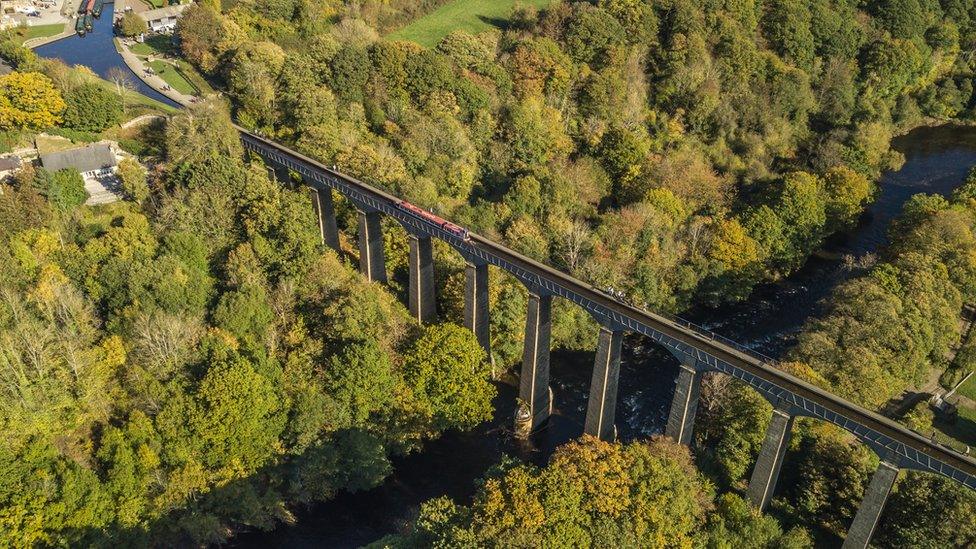Covid lockdown: Three more Welsh counties face local restrictions
- Published
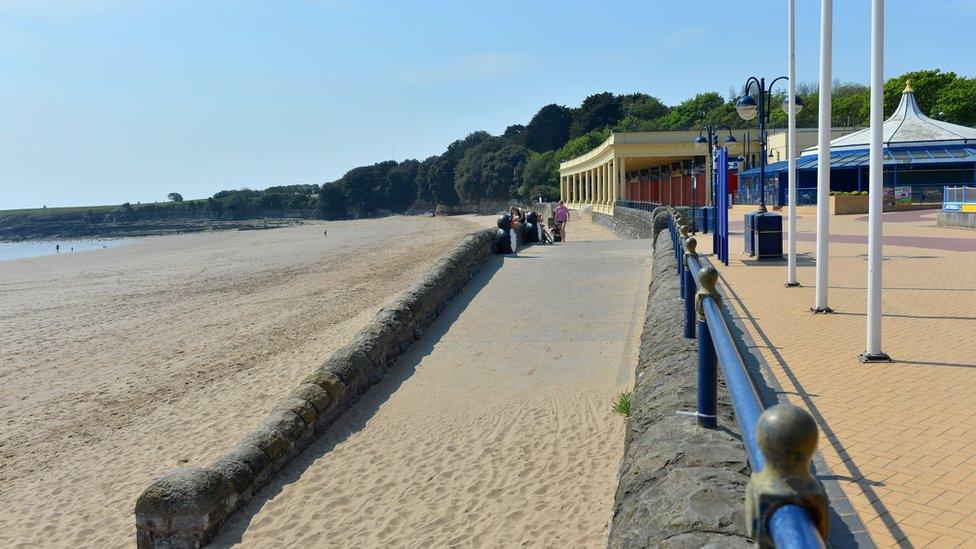
Barry Island is one of the major tourist attractions in the Vale of Glamorgan
Three more counties are to be placed under local lockdowns on Monday, the Welsh Government has announced.
Neath Port Talbot, Torfaen and Vale of Glamorgan will have tighter Covid-19 restrictions from 18:00 BST on Monday.
It means half of Wales' 22 local authority areas will be under local lockdowns, after rules came into force in Cardiff and Swansea on Sunday.
Almost two million people in Wales - two-thirds of the population - will be under local lockdowns.
Vale of Glamorgan council leader Neil Moore said it had not been an easy decision but pointed to the rate of infection rising to 34.4 people per 100,000 in the county borough.
"We have taken a decision today for early and preventative action," he said.
"One of the main reasons for this is that the sooner we stop the increase in transmission, the sooner the restrictions can be lifted.
"We must now all work together to make that possible."
Blaenau Gwent on 202 per 100,000 and Merthyr Tydfil at 169 per 100,000 currently have the highest rates of infection.
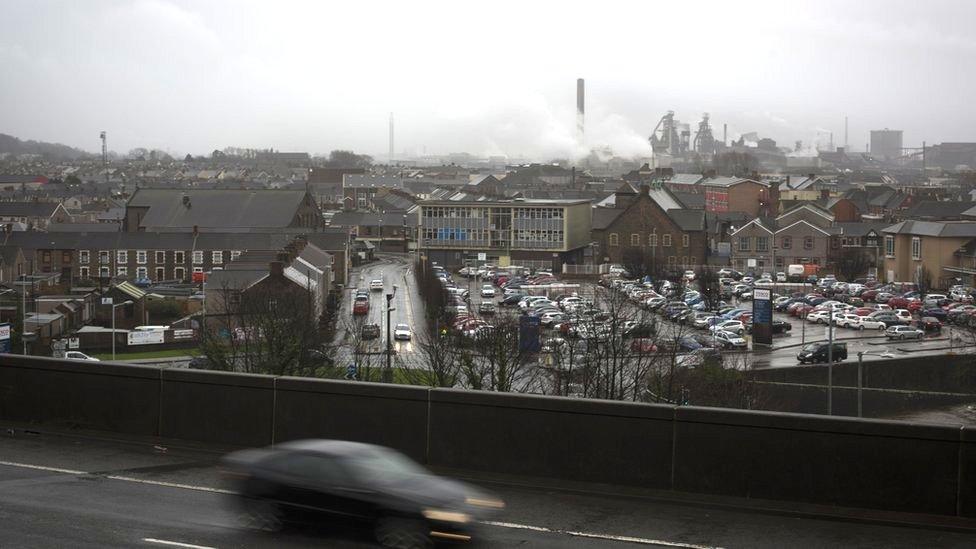
Neath Port Talbot will go into lockdown, meaning counties along the M4 corridor from Newport to Swansea will be under restrictions
Neath Port Talbot council leader Rob Jones said: "These restrictions are being imposed to protect public health, to protect you and your loved ones, and to stop people dying.
"Rates are much higher in local authority areas which border our county borough but we are now seeing rising rates here in Neath Port Talbot.
"We need the help of everyone across Neath Port Talbot to prevent the increasing spread of coronavirus and to bring the infection rates back down."
Mr Jones also urged people against panic buying, adding: "There is no need to be concerned about stocks running low."
Torfaen council leader Anthony Hunt said: "I know the introduction of restrictions is always a difficult decision, but it is a decision I support in order to protect people's health and to try and break the chain of transmission in Torfaen and stop the situation from getting worse.
"We have already seen this strategy work effectively in Caerphilly and Newport where numbers have dropped dramatically due to people adhering to the new rules."
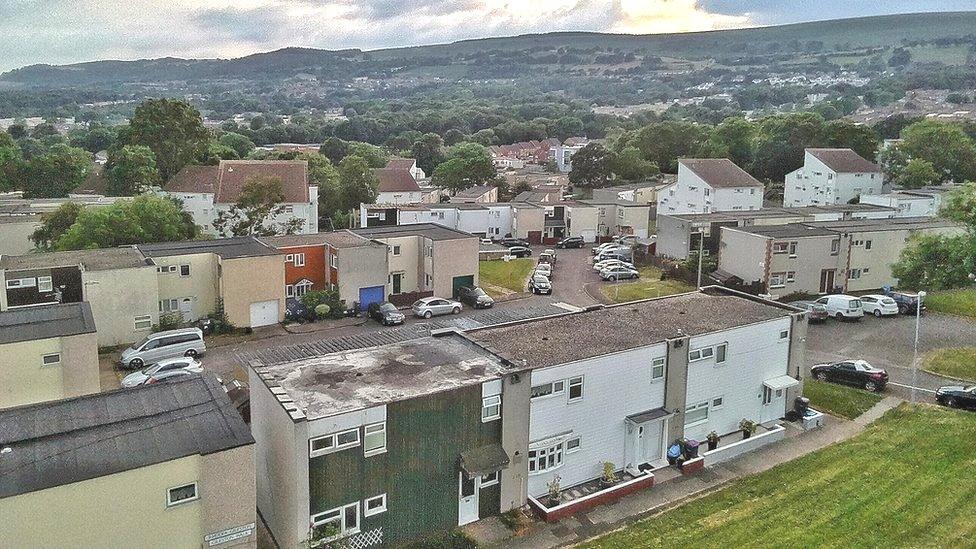
Cwmbran is one of the towns which will be affected by restrictions in Torfaen
Welsh local lockdown rules mean extended households must end and people are not allowed to leave or enter the council boundaries without a reasonable excuse.
People are allowed to travel outside the area for a limited number of reasons.
These include going to work if they are not able to work from home, to go to school, give care, or buy food or medical supplies.
Blaenau Gwent, Bridgend, Caerphilly, Merthyr Tydfil, Newport and Rhondda Cynon Taf were already under lockdown, while Llanelli in Carmarthenshire, became the first town to have restrictions imposed which do not apply to the wider county.
Cardiff and Swansea both went into lockdown at 18:00 BST on Sunday.
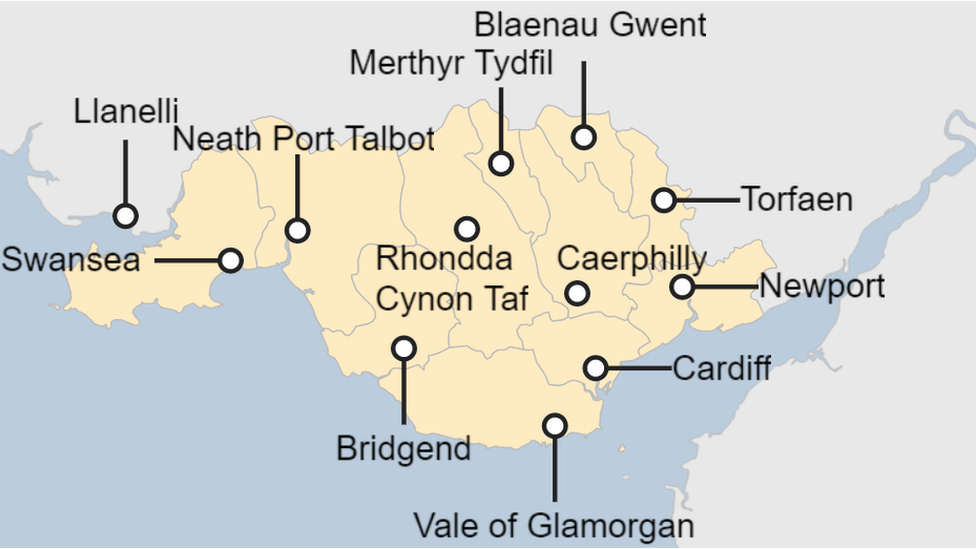
Eleven council areas and one town in Wales will be subject to extra restrictions from Monday night
From Monday evening, almost 1.9m of Wales' 3.1m people will be subject to local coronavirus rules.
First Minister Mark Drakeford said: "We are now taking further action and placing three more areas under local restrictions in south Wales - Neath Port Talbot, Torfaen, and the Vale of Glamorgan - because we are seeing rising rates in these three areas. These areas also share borders with local authority areas where rates are much higher.
"Introducing restrictions in any parts of Wales is always an incredibly difficult decision for us to make. But we're acting to protect people's health and to try and break the chain of transmission and stop the situation from getting worse.
"This is not a regional lockdown - this is a series of local restrictions in each local authority area to respond to a specific rise in cases in each area, which have distinct and unique chains of transmission."
Support for business
Welsh Conservative health spokesman Andrew RT Davies said: "The first minister might not want it to be described as a 'regional lockdown' but with two million people in the south Wales corridor now under some form of restrictions that's unfortunately what it is."
He called for a more targeted approach - "local not regional" - and said there needed to be urgent financial support for businesses affected.
Meanwhile Mr Drakeford said a meeting would take place next week with leaders of councils in north Wales, where he said the position "continues to be mixed".
"If we need to take action, we will, but the position isn't as clear there yet as it has been in the south and I want to make sure that we look at it with the detail it deserves," he added.
- Published27 September 2020
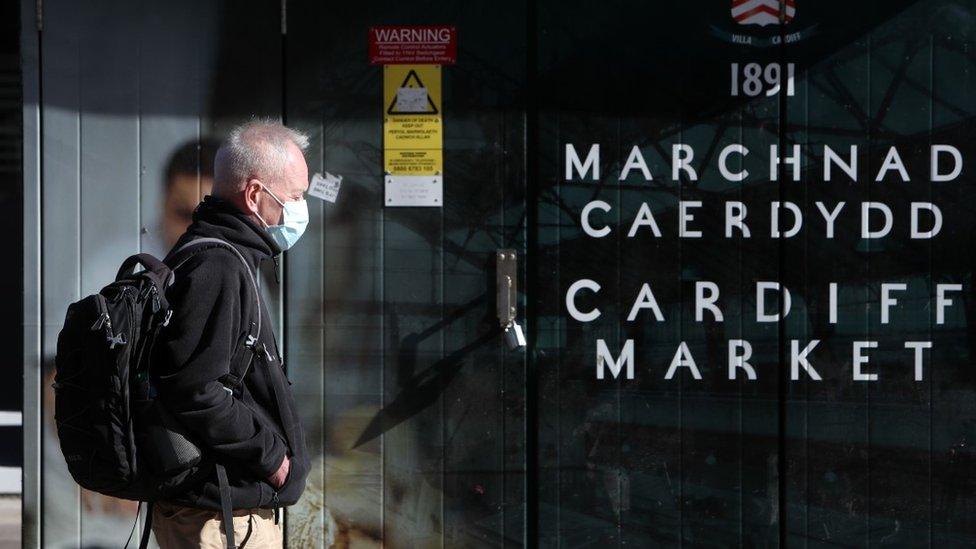
- Published10 October 2020
